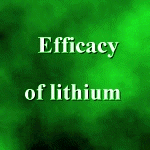
![]()
This site has been developed
by Duncan Double
Please let me know if you are
interested in bias in controlled trials
Links
Controlled trials from history

![]()
Randomised controlled trials are too often assumed to produce unbiased evidence. The most methodically rigorous trials are associated with less treatment benefit than poor quality trials (Moher et al 1998, Jüni et al 2001). Even the best quality trials may still not completely eliminate bias. Particular problems are unconcealed allocation (Schultz 1996, Hewitt et al 2005)), unblinding (Fisher and Greenberg 1997, Even et al 2000) and exclusions after randomisation (Fergusson et al 2002). Selective reporting of some results but not others in trial publications is common and is associated with statistical non-significance (Chan and Altman 2005). Conclusions in trials funded by for-profit organizations may be more positive due to biased interpretation of trial results (Als-Nielsen et al 2003).
References
Als-Nielsen B, Chen W, Gluud C, Kjaergard LL (2003) Association of funding and conclusions in randomized drug trials JAMA 290: 921-8. [Full text]
Chan A-W and Altman DG. (2005) Identifying outcome reporting bias in randomised trials on PubMed: Review of publications and survey of authors. BMJ, doi:10.1136/bmj.38356.424606.8F (published 28 January 2005) [Full text]
Even C, Siobud-Dorocant E, Dardennes RM. (2000) Critical approach to antidepressant trials. Blindness protection is necessary, feasible and measurable. British Journal of Psychiatry 177: 47-51 [Full text]
Fergusson D, Aaron SD, Guyatt G & Hébert P (2002) Post-randomisation exclusions: the intention to treat principle and excluding patients from analysis. BMJ 325: 652-4 [Full text]
Fisher S and Greenberg RP (eds) (1997) From placebo to panacea. Putting psychiatric drugs to the test. Chichester: John Wiley
Hewitt C, Hahn S, Torgerson DJ, Watson J & Bland JM (2005) Adequacy and reporting of allocation concealment: review of recent trials published in four general medical journals. BMJ, doi:10.1136/bmj.38413.576713.AE (published 10 March 2005) [Full text]
Jüni P, Altman DG & Egger M (2001) Assessing the quality of controlled clinical trials. BMJ 323: 42-46 [Full text]
Moher D et al (1998) Does quality of reports of randomised trials affect estimates of intervention efficacy reported in meta-analyses? Lancet 352: 609-13
Schultz K (1996) Randomised trials, human nature, and reporting guidelines. Lancet 348: 596-98
Zinc lozenges and the common cold - where's the bias?
Editorial from Annals of Internal Medicine and correspondence.
Trials of mainstream antidepressants could be criticised as much as those of St John's Wort
Uneasy Alliance -- Clinical Investigators and the Pharmaceutical Industry
Health policy report from New England Journal of Medicine.
The Science of the Placebo: Toward an interdisciplinary research agenda
Report of NIH Seminar
How much is the response to psychotropic medication due to the placebo effect?
Publications
Limitations of double-blind trials. [letter] British Journal of Psychiatry 1990; 157: 300
Blinding trials. [letter] British Journal of Psychiatry 1991; 158: 573-4
The placebo effect - involves deception. [letter] BMJ 1994; 309: 667
Unblinding in trials of the withdrawal of anticholinergic agents in patients maintained on neuroleptics. Journal of Nervous and Mental Disease 1995; 183: 599-602 [Medline]
Placebo mania. Placebo controlled trials are needed to provide data on effectiveness of active treatment. [letter] BMJ 1996; 313: 1008-9
Large scale trials exacerbate risk of spurious conclusion if bias is not eliminated. BMJ eLetters for Peto and Baigent, BMJ 317 (7167) 1170-1 (5 November 1998) [Response]

